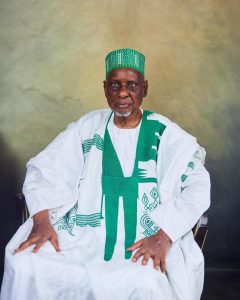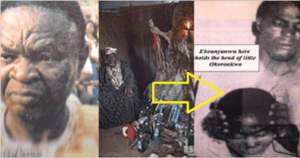22 years after, the Supreme Court, on Friday, freed Mr. Alban Ajaegbu, who was one of the accused persons in the celebrated ‘Otokoto’ ritual murder of 11-year-old Ikechukuwu Okoronkwo.

Little Okonkwo who was a groundnut seller, was on September 19, 1996, lured into a hotel called Otokoto in Owerri, Imo State and gruesomely beheaded.
Investigations had revealed that the victim became unconscious at the hotel after he drank a bottle of Coca-Cola that was spiked with drug, before he was killed.
The crime was discovered when 32-year-old Innocent Ekeanyanwu left the hotel to deliver Okonkwo’s head in a polythene bag to a client. An okada rider who was conveying Ekenyanwu to his destination discovered the fresh human head and alerted the police.
Among those arrested over the ritual murder included the owner of the hotel, one Vincent Duru, who was popularly referred to as Chief Otokoto during the protracted trial of seven suspects that were fingered in the crime.
Besides beheading the victim, the suspects were said to have removed vital organs from his body, including his genitals, before burying the mutilated corpse in a shallow grave. All the seven suspects fingered in the ritual killing were all found guilty and sentenced to death by hanging.
Meantime, Ajaegbu who was discharged and acquitted of the crime by the Supreme Court on Friday, was said to have worked at the hotel as a gardener.
The apex court, in a unanimous judgement by a five-man panel of Justices, held that circumstantial evidence the trial court relied upon to convict and sentence him to death by hanging, was not sufficient.
Specifically, Justice Kudirat Kekere-Ekun who prepared the lead judgment, held: “It must be restated here that the appellant was charged with murder and the prosecution has the burden of proving beyond reasonable doubt that it was the act of the appellant that caused the death of deceased.
“The appellant does not have the burden to prove his innocence. The lower court held that the defence of the appellant raised a lot of suspicion. “The law is well settled that suspicion, no matter how grave, cannot take the place of proof.”
She said that the assumption of the lower courts that because the appellant worked in the hotel for 17 years, he should have known who owed the farm that Okoronkwo was buried in, was fallacious. According to the apex court, “Suspicion cannot take the place of legal proof.
That the appellant worked in the hotel for 17 years and didn’t know who owed the farm cannot make him guilty. “The law is settled, that an accused person told lies does not make him guilty.” The apex court held that the prosecution failed to prove its case beyond every reasonable doubt.
Consequently, it set aside the judgment of the Court of Appeal in Owerri of 2012 which upheld the death sentence of the trial court and acquitted and discharged Ajaegbo. The decision of the apex court was read by Justice Ejembi Eko.
Discover more from TOKTOK9JA MEDIA
Subscribe to get the latest posts sent to your email.



























